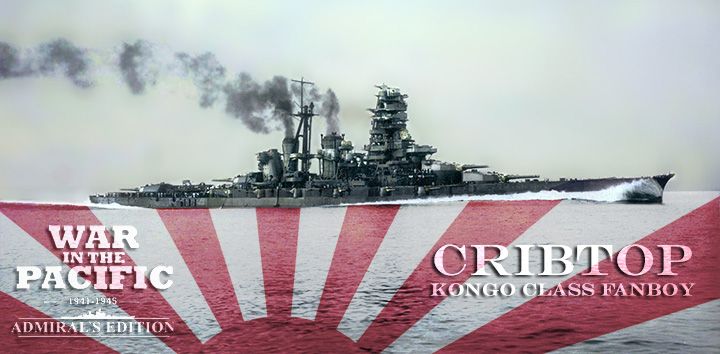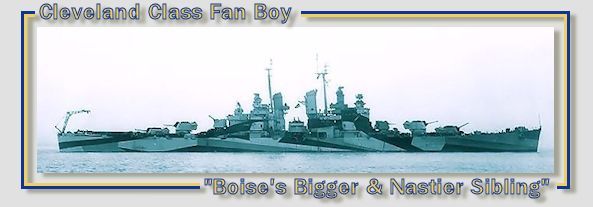Schlemiel
Posts: 154
Joined: 10/20/2011
Status: offline

|
I think from my perspective, the issue of ground unit surrenders is something worth your consideration. I do not think it puts the game in even the slightest doubt, but I think given your read of your opponent, you might have been able to have more resources available to be pushing harder against him at this moment. Because I'm ready both AARs, I won't comment on anything recent to avoid accidental opsec breaches as best as possible, but there was, I think, a fairly good example earlier. This is not meant as a criticism, per se, but rather a point that stood out to me at the time.
I'm thinking more of, say, Port Blair and the 3 or 4 Indian brigades that surrendered there (I forget the exact context) in the aftermath of the very-long-delayed fall of Singapore. I remember thinking at the time that two probably would have forced a very similar commitment from him, leaving you two more for your operations into the jungle at the time without letting him take it before the fall of Singapore. Even disbanding one of those brigades to accelerate the conversion to 42 squads and rebuild the raw av of your Indian divisions faster would have suited your own strategic goals better, or at least so my instincts as an observer said. Yes, you have absolutely managed to make John dance to your tune in a lot of theaters, but despite your admirable opportunism, I think the criticism that you have traded a lot of your early game squad pools for time is worth taking seriously, even if your overall assessment of the game seems to be accurate. It's very easy to be an other-side-of-the-couch armchair general (they need to make couches with back seats, I guess, for the purpose of making my metaphor better).
Is your assessment that those sacrifices to your #3 or 4 bottleneck resource in 1942(carriers, then aircraft, then either squads or combat transports, depending on your method of approach and attritional losses, imo) were all necessary in order keep him from areas that would have harmed your own eventual route of advance? You have a read on your opponent as someone who likes flashy moves, and frustrating those flashy moves might very well cause him to make some serious mistakes, but in an alternative timeline where Luganville was less occupied, would the KB have still been in the neighborhood of your Gilberts operation? Might he have committed to a flashy invasion toward New Zealand as you were speculating (and hoping) he might have at the time? I think, based on reading the AARs that I have, that a second-tier ahistorical invasion tends to put a great deal of IJ assets at risk without realizing the proper payoff very often. Those breakwaters might have been vital if he had brought sufficient force to Luzon and Singapore, but was the delay along all vectors (rather than just some vectors) something that checked his own tendency toward grand, flashy and, if your read is right, strategically unimportant attacks? I'm not in a position to judge, even with a bit of perspective from both sides, but I can see a reasonable argument that tying down a reasonably significant percentage of your limited free ground forces (and eventually pools if John plays like John) is the right price to pay for robbing him of the initiative early. It's a judgment call, and it will absolutely not cost you the game, but it might very well have delayed your victory and given him more time to train up troops and dig in. In an important way, I think it is fair to say that his play at Singapore and Luzon cost him months off his initiative. Would another division worth of troops in India (less garrison at Port Blair and/or Cocos, perhaps less at Luganville) have made a difference in your planning at this stage of the game? I think what is making many of us a little curious is that you ultimately gave John lots of tasty little morsels of units around the map for him to snack on to buy yourself time. That might or might not be the right decision (and the boolean status of that decision is probably unknowable), but how do you plan to make use of that time to punish John for not coming as far as you expected, especially since based on your own assessment, he did not have the extra divisions from scenario 2 for a broader invasion scope.
I can easily see decent roadblocks being critical to mess up the timing of certain opponents and prevent disaster. Your game against Q-Ball was probably such a scenario, where he could bring the full weight of his game to seriously threaten India and autovictory. For someone with very ambitious plans and meticulous planning, I think many of your deployments would have been very smart decisions, but from my read of your read of your opponent, I'm not sure that you haven't done John a few favors by defending as far forward as you have on as many fronts. He gets lots of flashy little victories which, at worst, delay your victory a little bit, but if you take the angle that John has been able to attrit your pools without needing to extend himself very far into Indian country and capturing more than historical space to buy himself time on defense, the exchange might not seem as favorable to you. Not to say that assessment is necessarily accurate, but if autovictory is off the table, the game is really about Japan buying itself as much time as possible, preferably by SCLS, but by limiting your ability to mass force against their economy as long as possible. He's certainly not done himself any favors in Burma, but, like I said, would an additional division or two worth of troops right now on your side change the equation for you (even to hold those jungle hexes while you freed, say, the Aussie division that's searching for the tiger that took an officer's leg ala Monty Python)?
Anyway, +1 for your post count. I'm very glad that both you and your opponent are enjoying the game, as that seems to be the best part of any matchup anyway, and it has been entertaining for us peoples in the audience too.
|
 Printable Version
Printable Version
























 New Messages
New Messages No New Messages
No New Messages Hot Topic w/ New Messages
Hot Topic w/ New Messages Hot Topic w/o New Messages
Hot Topic w/o New Messages Locked w/ New Messages
Locked w/ New Messages Locked w/o New Messages
Locked w/o New Messages Post New Thread
Post New Thread